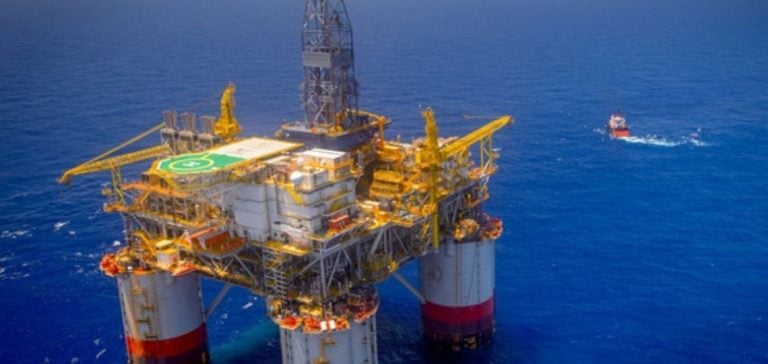Major oil producers in the Gulf of Mexico, including Chevron, Shell and Equinor, are currently evacuating their non-essential employees from several offshore platforms. This decision has been taken in response to forecasts by the US National Hurricane Center (NHC), which anticipate the arrival of a major hurricane in the next few days.
This weather system, currently forming to the west of Cuba, is expected to become a Category 3 or even 4 hurricane by this Thursday, posing a direct threat to energy infrastructures in the Gulf.
The anticipated impact of this storm on oil production, although still uncertain, is prompting operators to adopt preventive measures to ensure the safety of their personnel and installations.
A large number of strategic platforms have been evacuated, and although production has not yet been significantly interrupted, this situation could change rapidly depending on the storm’s intensity.
Key platforms under scrutiny
Companies such as Chevron, Equinor and Shell have announced the withdrawal of their non-essential personnel from major platforms such as Jack/St. Malo, Petronius, Anchor, Big Foot, and Tahiti for Chevron, and Titan for Equinor.
Malo, Petronius, Anchor, Big Foot and Tahiti for Chevron, and Titan for Equinor.
Shell, for its part, has begun to reduce production at its Appomattox facilities and has temporarily shut down its Stones platform.
This preventive management is designed to limit the risks associated with a possible intensification of the hurricane, which could reach winds in excess of 200 km/h.
These platforms, located off the coast of the United States, produce a significant proportion of the country’s offshore oil.
Temporary stoppages or slowdowns in production at these sites will have a direct impact on domestic energy supplies, although companies are currently reporting that production has not been significantly affected.
Oil operators remain on alert and are closely monitoring the evolution of weather conditions, ready to adopt additional measures if necessary.
A sector accustomed to climatic risks
The Gulf of Mexico is one of the world’s most active oil production zones, accounting for some 17% of US crude oil production.
Every year, operators in this region face major climatic risks, particularly during the hurricane season.
While offshore oil production in this region is often affected by these extreme weather events, oil companies have developed risk management strategies that include evacuation plans and emergency shutdown protocols for critical facilities.
US oil companies have invested heavily in storm-resilient infrastructure, but the recurrence of extreme weather events in this region remains a major challenge.
In addition to personnel evacuations, operators need to ensure that offshore structures can withstand high winds, powerful waves and potential flooding.
These events often lead to temporary production stoppages, which can have an impact on international oil prices, depending on the duration and scale of the disruption.
Careful tracking of the hurricane’s path
The US National Hurricane Center continues to monitor the evolution of this tropical system, which is expected to hit the northern and northeastern coasts of the Gulf of Mexico.
The name of this potential hurricane, “Helene”, has not yet been confirmed, but it could become the second major storm to hit this region in just two weeks.
The risk of storm surge, combined with hurricane-force winds, presents a significant threat to coastal communities and energy infrastructure.
Weather forecasts indicate that the hurricane could reach Category 4, reinforcing the need for businesses to maintain rigorous prevention operations.
Such storms have historically caused significant damage to energy infrastructures, as seen with Hurricane Ida in 2021, which temporarily disrupted almost 95% of offshore oil production in the Gulf.
Economic consequences to be anticipated
If weather conditions continue to deteriorate, production interruptions in the Gulf of Mexico could have repercussions on the global energy market, particularly at a time when supply and demand are already under pressure.
Platforms in this region play a key role in US oil supply, and any drop in production could have a direct impact on crude oil prices.
The companies concerned, although accustomed to these types of temporary interruptions, will have to monitor the resumption of operations closely to minimize the economic impact.
At this stage, it is still difficult to quantify potential losses, but global markets are keeping a close eye on developments.






















